<< Previous | Displaying results 4681-4690 of 6776 for "" | Next >>
A postcard of the SS St. Louis. May 1939. The plight of German-Jewish refugees, persecuted at home and unwanted abroad, is illustrated by the May 13, 1939, voyage of the SS St. Louis.
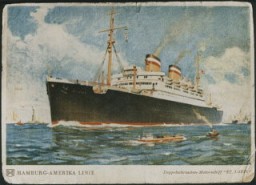
Refugees aboard the St. Louis wait to hear whether Cuba will grant them entry. Off the coast of Havana, Cuba, June 3, 1939.
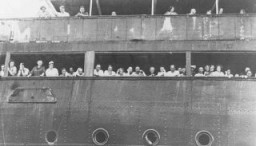
German women at work in the offices of the German Census Bureau. The board gives directions for tabulation: the center column instructs that number 3 is the indicator to be used for Jews. Germany, 1933.
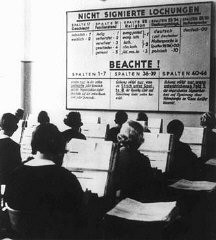
View of a barbed-wire fence separating part of the ghetto in Krakow from the rest of the city. Krakow, Poland, date uncertain. During the Holocaust, the creation of ghettos was a key step in the Nazi process of brutally separating, persecuting, and ultimately destroying Europe's Jews. Ghettos were often enclosed districts that isolated Jews from the non-Jewish population and from other Jewish communities.
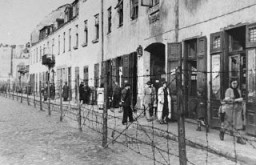
Deportation from the Krakow ghetto at the time of the ghetto's liquidation. Krakow, Poland, March 1943.
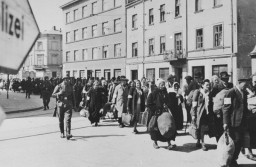
Jews forced to move into the Lodz ghetto. Lodz, Poland, date uncertain. During the Holocaust, the creation of ghettos was a key step in the Nazi process of brutally separating, persecuting, and ultimately destroying Europe's Jews. Ghettos were often enclosed districts that isolated Jews from the non-Jewish population and from other Jewish communities.
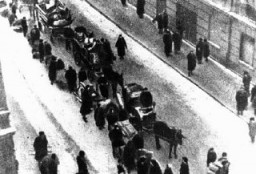
Forced laborers work on the construction of a wall around the Warsaw ghetto area. The Germans announced the construction of a ghetto in October 1940 and closed the ghetto off from the rest of Warsaw in mid-November 1940.
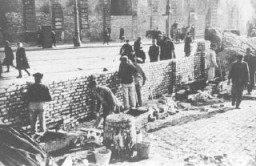
Footbridge over Chlodna Street, connecting two parts of the Warsaw ghetto. The street below was not part of the ghetto. Warsaw, Poland, date uncertain.
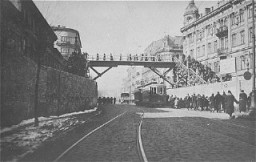
The footbridge over Zgierska Street that joined the two parts of the Lodz ghetto. The street itself was not part of the ghetto. Lodz, Poland, ca. 1941.
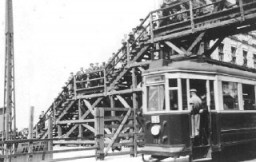
A Jewish man and child at forced labor in a factory in the Lodz ghetto. Lodz, Poland, date uncertain.
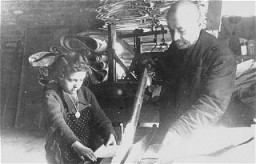
We would like to thank Crown Family Philanthropies, Abe and Ida Cooper Foundation, the Claims Conference, EVZ, and BMF for supporting the ongoing work to create content and resources for the Holocaust Encyclopedia. View the list of donor acknowledgement.